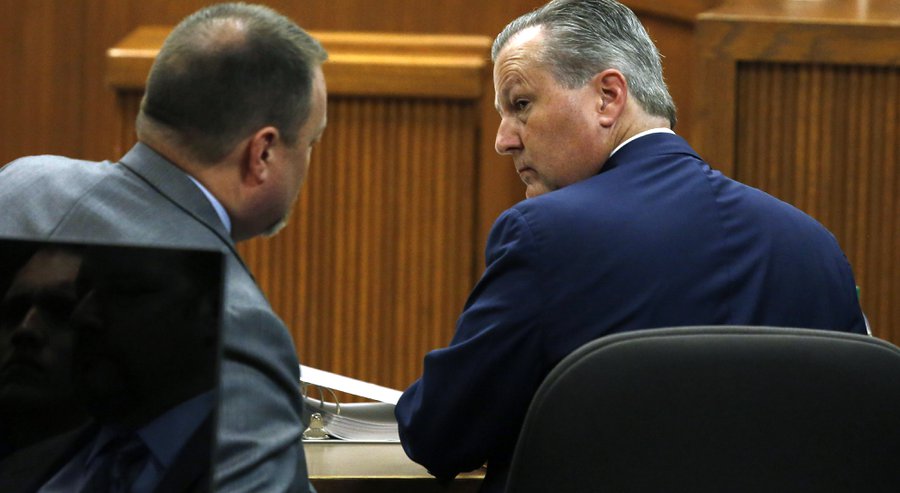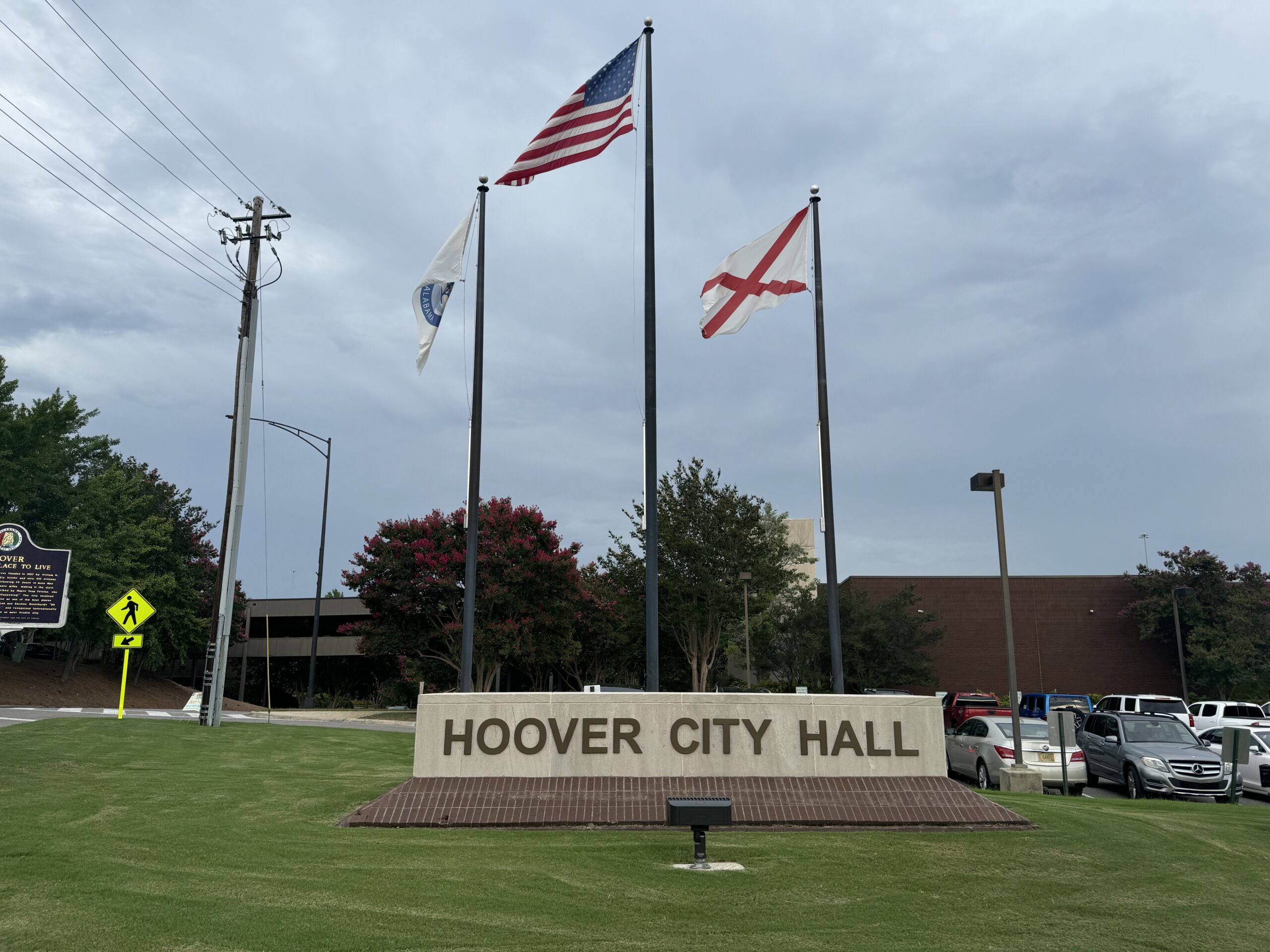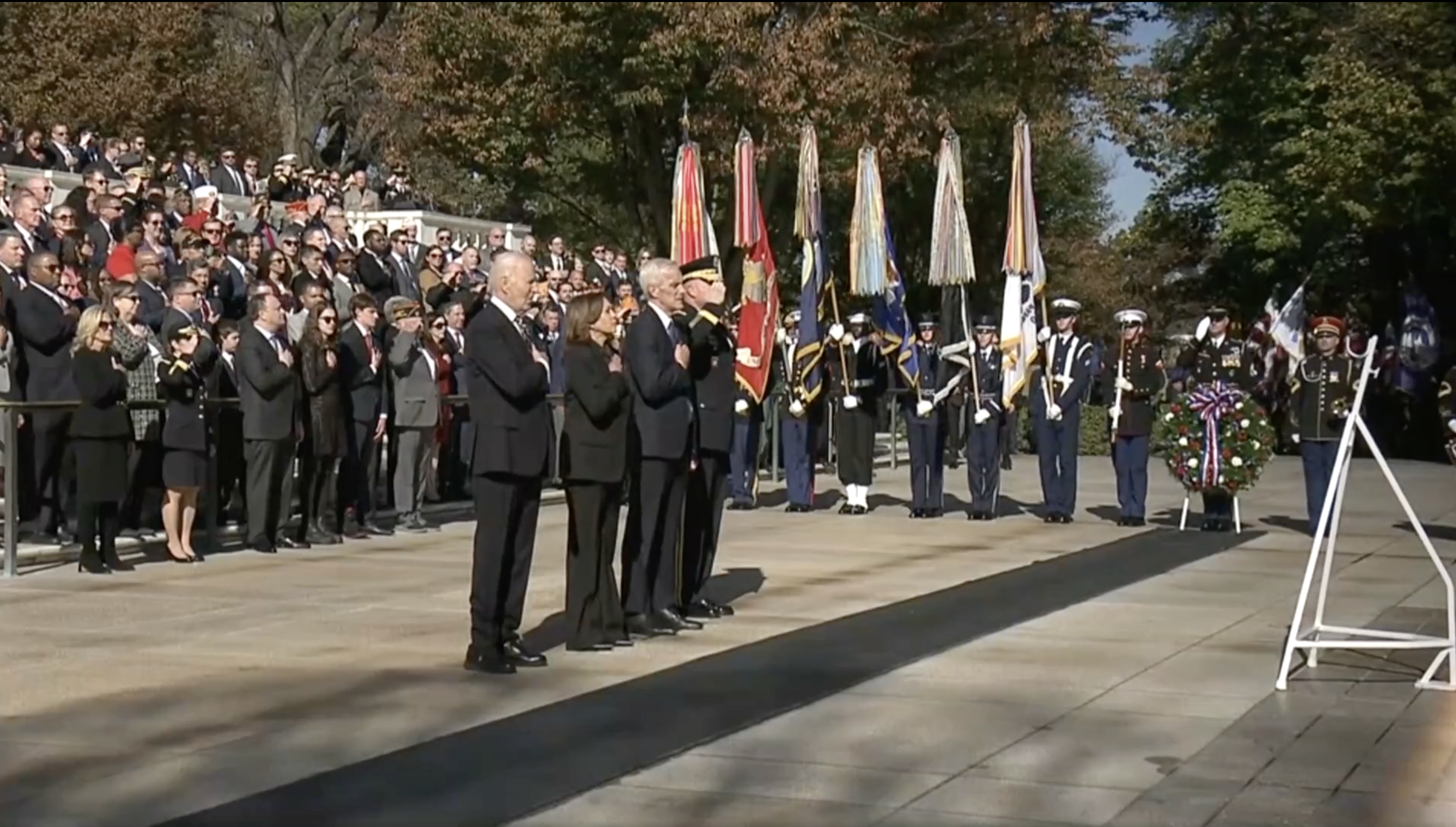The ethics trial of embattled Alabama House Speaker Mike Hubbard continued Wednesday as his associates and employees, past and present, took the witness stand.
Day two focused on Hubbard’s businesses and his consulting contracts with several companies, as the State tried to prove Hubbard used his previous position as chairman of the Alabama Republican Party to bring in money and business to his companies, Craftmaster Printers and Auburn Network.
Up first was the president and co-owner of Craftmaster Printers, Barry Whatley, who bought the company along with Hubbard in 2000.

“It’s been like raising the Titanic. It’s been a struggle since day one,” Whatley said of the company that was $8.8 million in debt at the time of initial purchase.
The majority of Whatley’s testimony focused on Craftmasters’ relationship with a Florida-based political marketing company called Majority Strategies. Majority Strategies has used Craftmasters for printing and mailing for political campaigns, in a relationship Whatley likened to that of a “roller coaster.”
Next to the stand was Chris Hines, the former senior vice president of Auburn Network. Hines testified that company documents listed Hubbard as the sole shareholder and an employee of the Auburn Network whose salary was listed at $132,000 in September of 2013.
Under questioning from prosecutors, Hines testified he was aware that Mike Hubbard brought in a number of consulting contracts — with Southeast Alabama Gas District, Robert Abrams with CV Holdings, Edgenuity, and the American Pharmacy Cooperative Inc. — that each paid from $5,000 to $12,000 per month in consulting fees. Hines went on to explain he didn’t know exactly what Hubbard did for these companies, simply that he provided them with consulting services.
Prosecutors introduced a check for $7,500 listed as being for “lobbying services from one the companies to the Auburn Network into evidence.
Defense attorney Bill Baxley made clear during cross-examination all but one of the contracts were intentionally arranged so that no consulting work could be done in the state of Alabama, to avoid ethics violations.
The third witness of day two was the clerk of the Alabama House of Representatives Jeff Woodard, whose testimony focused on a bill from the 2013 legislative session as Hubbard is accused of voting for SB 143 knowingly having a conflict of interest.
Woodard testified that Hubbard voted yes for the bill in question, which included language that would give American Pharmacy Cooperative Inc. (APCI), one of the businesses the Auburn Network had a contract with, a monopoly on Medicaid prescriptions in the state.
During cross-examination, Woodard testified the version of the budget, which ultimately became law, didn’t include all of the additional language that benefited Hubbard.

Among the final two witnesses of the day was Josh Blades, Hubbard’s former chief of staff in 2013, who at many times got emotional on the stand.
Blade testified during the 2013 legislative session he was involved in meetings and discussions about adding the APCI language to the general fund budget but did not know that Hubbard had a contract with the company until the day of the actual vote. According to Blades when he asked Hubbard about the contract, Hubbard explained it was only for work outside of the state.
Blades went on to advise Hubbard to vote against the budget, but according to Blades, Hubbard said not voting would raise too many “red flags.”
“We told him it was a problem, and we didn’t think he should move forward with the language in the budget because it looked bad,” said Blades. “I told Mr. Hubbard he should not vote on the budget.”
“He said it would raise too many red flags if the speaker did not vote on his own budget,” Blades continued, explaining Hubbard’s intent was to fix it later by removing the language.
“I was upset that I had played a role in what transpired that day, and that I had played a role unknowingly,” Blades said on the stand, adding that he was “afraid that there might be legal implications after all this transpired.”
The language was later removed from the legislation.
The fifth and final witness of the day was another former 2013 employee in the speaker’s office, Jason Isbell. Isbell, current vice president of legal and governmental affairs, in-house attorney and lobbyist for the Alabama Banker’s Association was chief counsel to Hubbard in 2013.
Isbell’s testimony focused on the specific language added to the 2013 budget. He explained that despite drafting the ACPI language for the 2014 budget he did not know of Hubbard was consulting for APCI at the time.
“I was an attorney in the speaker’s office; I wasn’t the speaker’s attorney,” Isbell said.
If convicted, Hubbard faces a maximum penalty of two to 20 years imprisonment and fines of up to $30,000 for each count. He would be removed from office if convicted of any of the 23 charges.
Witnesses expected on Thursday:
- Randy Kammerdiener: co-owner of Majority Strategies co-owner
- Don Williamson: former Alabama Medicaid Agency Director
- Mary Lawrence: legislative fiscal analyst of Health and Social Services
- Rachel Riddle: Legislative Fiscal Office, Senate Fiscal Officer, Deputy Director
- Norris Green: former Director of the Alabama Legislative Fiscal Office
- Steve Clouse: Alabama Representative, Chair of the House Ways and Means Committee
Related
Share via:














